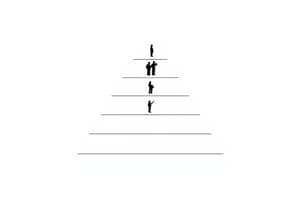Podcast
Questions and Answers
Which personality type is associated with high extraversion, high neuroticism, and high conscientiousness?
Which personality type is associated with high extraversion, high neuroticism, and high conscientiousness?
- Extravert
- Type A (correct)
- Type D
- Introvert
According to research, which personality type is more likely to engage in gardening and home improvement?
According to research, which personality type is more likely to engage in gardening and home improvement?
- Extravert
- Introvert (correct)
- Type A
- Type D
What is the primary focus of research on personality and exercise?
What is the primary focus of research on personality and exercise?
- Understanding the relationship between personality and exercise preferences
- Identifying successful athletes
- Developing targeted exercise programs (correct)
- Studying the impact of exercise on personality development
Which personality trait is associated with low agreeableness?
Which personality trait is associated with low agreeableness?
What is the characteristic of Type D personality?
What is the characteristic of Type D personality?
Which statement is true about the relationship between personality and exercise?
Which statement is true about the relationship between personality and exercise?
What is the primary difference between Type A and Type D personality?
What is the primary difference between Type A and Type D personality?
According to research, which activity is more likely to be engaged in by extraverts?
According to research, which activity is more likely to be engaged in by extraverts?
What is the relationship between Type A personality and exercise?
What is the relationship between Type A personality and exercise?
What is the primary goal of research on personality and exercise?
What is the primary goal of research on personality and exercise?
Flashcards are hidden until you start studying
Study Notes
Personality Traits
- Cheerful: upbeat regardless of who they are talking to
- Professional: punctual, confident
- Moody: reactive, volatile, unpredictable
- Intense: passionate, fierce, forceful
Personality Approach
- Trait approach: people have certain traits that influence behavior, thoughts, and emotions
- Everyone has a number of traits, but only a few dominate
- Over 4000 adjectives that describe observable behavior
Big Five Model (Digman, 1990)
- Openness to experience
- Conscientiousness
- Extroversion
- Agreeableness
- Neuroticism
Personality Development
- Environmental factors: reinforcement, modeling
- Person factors: biological, traits/dispositions
Humanistic Psychology
- Focuses on personal responsibility, human growth, personal striving, and individual dignity
- Self-actualization: attempts to fulfill one's potential
- Maslow's Hierarchy of Needs: once basic needs are met, individuals strive to meet higher needs
Cognitive-Behavioural Approach
- Behavior is learned through experience
- Influenced by rewards and punishment
- Self-efficacy: belief in one's capabilities to achieve a goal or outcome
- Social Learning Theory: people are active agents in shaping their behaviors and are influenced by their inner drives and environments
Biological/Evolutionary Psychology
- Personality can be moderately heritable, suggesting an evolutionary basis
- Belief that individual differences in extraversion reflect differences in cortical arousal
- Neuroticism is a manifestation of individual differences in limbic activity (amygdala activation)
Interactionist Approach
- Personal/situational factors impact behavior predictively
- Situational interplay between person and environment determines behavior
- B=ƒ(P,E)
Personality Traits and Exercise
- Research evidence: Type A personality is positively associated with exercise
- Type A personality: blend of competitiveness and hostility with agitated behavior
- Type D personality: blend of worry, gloom, and lack of self-assurance
- Targeting exercise programs: identifying at-risk personalities and preferences for exercise
Studying That Suits You
Use AI to generate personalized quizzes and flashcards to suit your learning preferences.




